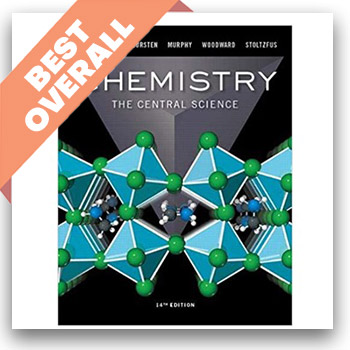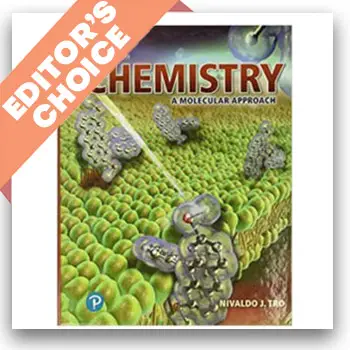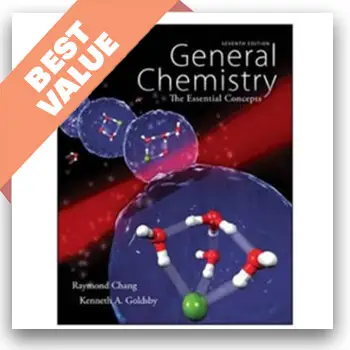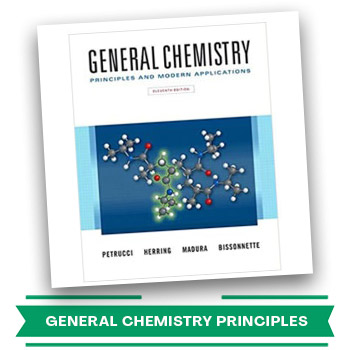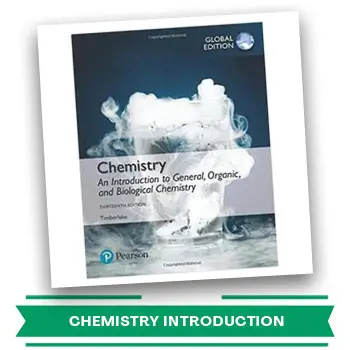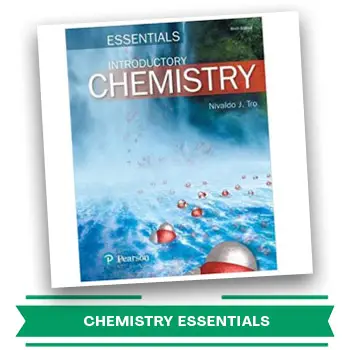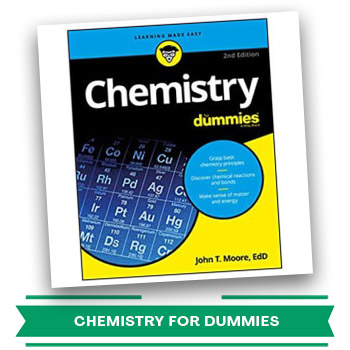Whether you’re an instructor or a student, finding the best chemistry textbook may be a daunting task. Thus, planning for the next school year could be a wise decision for you.
In this article, our team will help you make an informed decision in choosing the most suitable chemistry book for your particular course syllabus, including AP Chemistry. We spent 120 hours reading through these books to come up with the cream of the crop.
OUR #1 RATED
Chemistry: The Central Science
- At least 40 metric conversions
- Charts and tables have more details
- Self-paced tutorials
- Well-explained core concepts
- Includes practice exercises
OUR #2 RATED
Chemistry: A Molecular Approach
- Easy to navigate layout
- Interesting real-world samples
- Key learning outcomes
- Excellent visual aids
- Sample problems are from basic to cumulative
OUR #3 RATED
General Chemistry: The Essential Concepts
- Solid binding
- Excellent examples for exams
- Excellent choice for a formal class
- Tackles two semesters of general chemistry
- Has animations correlated to the text
Table of Contents
Top 7 Chemistry Textbooks
1. Chemistry: The Central Science
The Chemistry: The Central Science is one of the best chemistry textbooks that offer excellent quality at an affordable price tag. This is the 14th global edition of the best general chemistry textbook for students.
This organic chemistry publication offers well-explained core concepts for chemistry, making students understand each topic better. It also shows practical applications that most students could apply in their everyday lives.
We like how this organic chemistry publication also offers practice exercises that could help students understand the material/reference and improve their problem-solving abilities in chemistry. The Central Science book could get you through both semesters of general chemistry of university or college.
PROS
- At least 40 metric conversions
- Charts and tables have more details
- Self-paced tutorials
- Well-explained core concepts
- Includes practice exercises
CONS
- Some parts are a bit dry
- Some specific concepts are difficult to understand
2. Chemistry: A Molecular Approach
The Chemistry: A Molecular Approach is a chemistry study guide that is an excellent choice for any chemistry high school syllabus. This textbook strengthens students’ ability and skills in the essential elements of data interpretation, team cooperation, and quant analysis detail.
The Chemistry: A Molecular Approach also comprises exercises taken previously, during, or at a later activity. This book also provides an interactive and digital experience to students. It also comes with multi-level images that may help readers understand various chemistry concepts.
Furthermore, The Chemistry: A Molecular Approach has concept tutorials explaining all challenging topics in a well-explained and well-detailed manner like Chemistry: The Molecular Nature of Matter and Change.
PROS
- Easy to navigate layout
- Interesting real-world samples
- Key learning outcomes
- Excellent visual aids
- Sample problems are from basic to cumulative
CONS
- Topics aren’t given equal weight
- Some chapters don’t provide an in-depth explanation
3. General Chemistry: The Essential Concepts
The General Chemistry: The Essential Concepts is another best chemistry lesson guide on our list. This is the 7th edition of General Chemistry, which is essential for a one-year general chemistry syllabus. This book also features Dr. Chang and Dr. Goldsby’s concise but thorough approach for natural chemists in dealing with things regarding their environment.
This chemistry publication strikes a balance between application and theory approach by incorporating real-world examples. It also features animations correlated to the text, conceptual idea review, and hand-sketched worked examples.
This General Chem publication also helps students visualize the three-dimensional atomic and molecular nature of matter and its structures. It also develops their problem-solving and critical thinking skills regarding everyday activities and their natural environment.
PROS
- Solid binding
- Excellent examples for exams
- Excellent choice for a formal class
- Tackles two semesters of general chemistry
- Has animations correlated to the text
CONS
- Shorter than average chemistry books
- Lacks thorough explanation
4. General Chemistry: Principles and Modern Applications
The General Chemistry: Principles and Modern Applications is one of the best chemistry textbooks. It presents superior practice problems, precise argument, and detailed treatment of the subject through a lucid writing approach. This one is the 11th edition of the General Chemistry: Principles and Modern Applications.
This organic chemistry textbook also offers enhanced hallmark features such as revised discussions and innovations that respond to fundamental market needs. It also provides a detailed and modern treatment of organic chemistry foundation.
This chemistry material aims to embrace the power of visual learning and conquer the trials of effective problem solving and assessment.
PROS
- Presents more superior problems
- Features precise argument
- Responds to key market needs
- Improves practical problem solving and assessment
- Comes with innovations
CONS
- Major formatting issues for digital books
5. Chemistry: An Introduction to General, Organic, and Biological Chemistry, Global Edition
The Chemistry: An Introduction to General, Organic, and Biological Chemistry, Global Edition is another top chemistry loose-leaf on our list. It features almost the same content as the traditional text in a more convenient loose-leaf version. This book edition and format also offer a less expensive price tag than paperbacks and hardcovers.
This is the 13th The Chemistry: An Introduction to General, Organic, and Biological Chemistry, Global Edition chemistry loose-leaf edition. It is ideal for those interested in learning anything about the allied health foundation.
It also comes with a friendly presentation style, making it a perfect choice for high school students who don’t have prior knowledge or a foundation of chemistry.
PROS
- Provides relevant real-world samples
- Provides essential activities and exercises
- Has new problem-solving tools
- Clinically focused
- Fosters the development of problem-solving skills
CONS
- Some missing pages
- Almost the same as the previous edition
6. Introductory Chemistry Essentials (Mastering Chemistry)
The Introductory Chemistry Essentials (Mastering Chemistry) is a chemistry textbook ideal for one-semester courses in Preparatory Chemistry. It prepares high school students for success by building 21st-century problem-solving skills one could easily develop.
The Introductory Chemistry Essentials (Mastering Chemistry) is on its 6th edition and has been encouraging chemistry students’ interest by showing how chemistry manifests in their daily lives.
Nivaldo Tro is the author of The Introductory Chemistry Essentials (Mastering Chemistry). The author wants to draw upon his classroom experience as an award-winning instructor by providing a visual text for his learners.
The author wanted to extend chemistry from the laboratory directly to every student’s world. The author also aimed to capture student attention more using various relevant applications and an engaging writing style in The Introductory Chemistry Essentials (Mastering Chemistry) book.
The author also presents real data in real-life situations such as cleaning, cooking, medicine, and the environment.
PROS
- Provides a superior teaching and learning experience
- Includes new questions, data, and sections
- Includes new Conceptual Checkpoints
- Provides a visual text
- Presents real data in real-life situations
CONS
- Somewhat expensive
- Errors in some book access codes
7. Chemistry For Dummies
The Chemistry For Dummies is a chemistry textbook ideal for students/readers who have little to almost no prior knowledge about General and Organic Chemistry. This book purposely uses everyday activities in presenting the ideas and concepts of chemistry step-by-step for beginners.
The Chemistry For Dummies focuses on a fun and easy-to-grasp way of learning basic chemistry for beginners. The author of this book also tackles basic concepts of matter and energy, acids and bases, and atoms and molecules.
The book’s author tracks a typical chemistry syllabus and provides time-saving tips from reliable chemistry professors. The Chemistry For Dummies also makes the periodic table, Quantum mechanics, and Quantum theory more approachable for beginners.
PROS
- Makes periodic table approachable
- Includes basics of thermochemistry
- Quick, easy-to-follow lessons for self-study
- Tracks a typical chemistry course
- Packed with time-saving tips
CONS
- Not well organized
- Doesn’t help when you’re in college
Choosing A Book

Are You An Instructor?
When choosing one chemistry book as an instructor/teacher, you should search for a book that would cover all the topics of the whole semester you are supposed to teach. Look into your curriculum or syllabus, and then make sure that the topics are the same.
The book should be able to explain the complexity of topics in a relatable and understandable way. This way, you can easily cascade the learning experience and learning curve to your students.
Are You A Student?
If you are a student, you should search for high school chemistry textbook reviews to ensure that the book covers all the topics you need to learn for your semester.
It should provide you multiple exercises and necessary tests that could help you understand the topics better step-by-step. The book must also have well-organized thoughts and various concepts ranging from simple to complex. We also recommend pairing your book with a solid organic chemistry model kit and a top-rated USB microscope for better visual learning.
Buying Guide for Chemistry Textbooks

Writing Style
As a buyer, it is essential to determine the style of the book you are about to buy. For chemistry or biochemistry books, the textbook’s tone and overall style should be in a formal tone. It should also comprise academic conventions, evidence-based, and thesis-driven. Our team also suggests looking for chemistry books that provide suitable complexity and higher-order thinking. If you’re looking for high school chemistry textbooks, check here.
Quality
Quality is equally essential in considering any chemistry handbook to buy. The book’s overall quality could be associated with the exercises given in the book, the depth of each explanation, and the research and problems given. You may also consider the quality of how the book had been organized from cover to cover.
Simple Explanations
Chemistry equations are challenging and are something a bit different from mathematical problems, pH scale, and equations. Therefore, the best chemistry publication should include an in-depth explanation while developing your understanding of the whole process. It should feature innovative ways to explain the core concepts to make students/readers understand the lessons easier.
Related Posts:
- Understanding Polar & Nonpolar Molecules
- Melting Silver with Borax – How to Do It?
- Finding Chiral Centers – Step-By-Step Guide
- Determining CS2 Double Bonds – Does It Have One?
- Determining the Number of Lone Pairs in Sulfur
Sample Exercises
The sample exercises should also include exercises that provide higher-order thinking abilities like discussing atoms and molecules concepts. Higher-order thinking skills include cognitive processes used to comprehend, solve problems, and express concepts or describe abstract ideas that cannot be easily acted out, pointed to or shown with images. [1]
Textbook or Supplement?
You should also consider whether you want to use the best chemistry handbook as a necessary textbook in your chemistry class or just a supplementary book.
If you opt to find a necessary textbook, the book’s topics should cover all the chapters indicated in your course.
However, supplementary textbooks may or may not fully cover the topics, as they would only act as a supplementary option for your better understanding of the lessons. Check out our list of AP Chem review books.
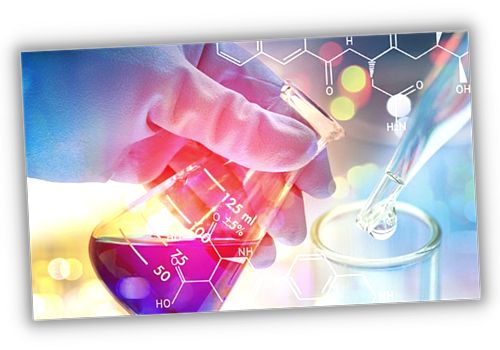
Pricing
It would be best also to consider the price tag of the best chemistry books. If you are to use the books as a supplementary book, you may not want to spend too much. However, if the books are necessary and required, spending a little higher than supplementary books could be reasonable.
Beginner or Advanced Learner?
Being a beginner or an advanced learner may also affect your choice of buying the best chem book. They are most inclined to buy chemistry books that offer easier-to-understand chemistry concepts and formulas for beginners. On the other hand, advanced learners would definitely purchase books with a more advanced teaching strategy suitable for their level of prior knowledge. Find out what’s the best chemistry set for kids here.
And the #1 Chemistry Textbook is...
Our team chooses The Chemistry: The Central Science as the #1 chemistry textbook based on extensive research. This is the 14th global edition of the best general chemistry textbook for students at an affordable price. It also offers well-explained core concepts for chemistry, making students understand each topic better.
The Central Science chemistry textbook also offers practice questions and exercises to help more students understand the handbook and improve their problem-solving abilities in chemistry. The Central Science textbook also shows practical applications that most students could apply in their everyday lives.
Thank you for reading this far! I hope that the information provided in this article will be helpful to you.
OUR # 1 Recommendation
The Chemistry: The Central Science Highlights
- Self-paced tutorials
- Well-explained core chemistry concepts
- Shows practical applications for chemistry
- Includes practice exercises and questions


